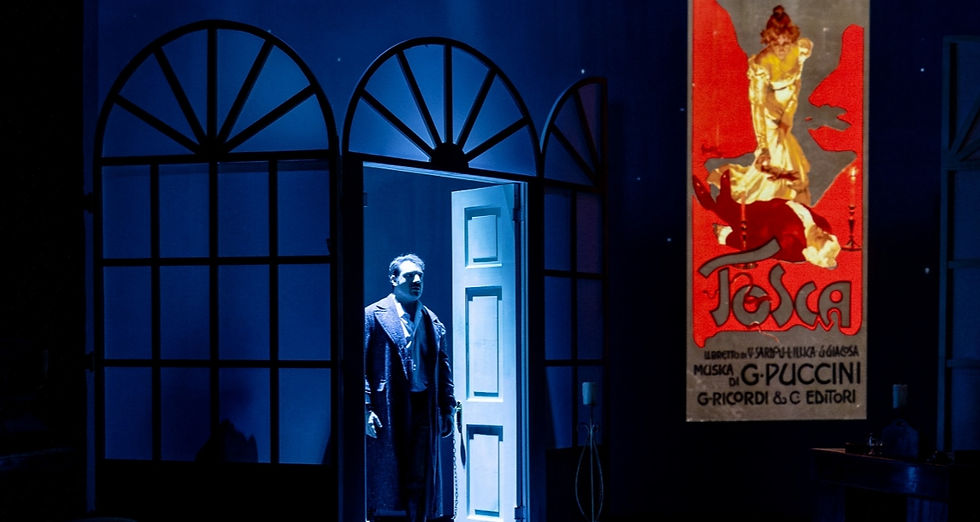Geoffrey Dolton, Alex Rugman, Amanda Harman
Clonter Opera
Clonter Opera Farm, Swettenham
July 18 - 27, 2024: 2 hrs 35 mins


Puccini wrote a lot of operas with love stories in them and, in the words of Geoffrey Dolton (director, and whose inspiration this new piece originally was), "It’s remarkable how his life was mimicked in his… work”.
The 50th anniversary of Clonter Opera’s foundation on a farm in the leafy Cheshire countryside is being celebrated with a show, The Butterfly House, that’s not so much an opera as a multimedia account of his career and philandering love life, with excerpts from his operas chosen to represent aspects of each.
As Dolton, who also directs and appears on film and on stage as the ageing Puccini, puts it: “Each opera that he did, he had a woman who was his muse for that piece… and it was never a platonic relationship.”
That may or may not be strictly true, but in the scenario, created by Clonter Opera’s Amanda Harman and dramatist Alex Rugman along with Dolton, we learn a lot about the composer’s complicated and not-so-private life, and there are certainly aspects of his opera plots – represented by a set of his greatest hit arias and duets – that demonstrate or reflect on similar situations to his own love dilemmas.
From the start, Clonter has tried to offer aspiring opera singers a chance to hone their talents with a friendly audience in a small-scale setting – its summer productions have sometimes had the feel of a miniature Glyndebourne, as there’s accommodation for diners as well auditorium seating – but this time the show is one created in-house as a play with music (plus a lot of pre-recorded narration on video in a charming imitation of black-and-white cinematography, credit for which goes to Steve Brookfield).
This time they show what they can do with their voices but also have to be straight actors, as they appear as Puccini, his wife, his publisher, his various lovers, his lovers’ husbands, his illegitimate offspring, etc, as well as taking on operatic roles for the sung excerpts.
The accompaniments are reduced (by Philip Sunderland, who is also music director) to piano and percussion – the latter an interesting variety of tuned and untuned sounds ably created by Andrea Vogler.
The singing performers are certainly versatile: Olivia Carrell – who has taken principal roles at the Buxton International Festival – is a vivid actress as well as very capable lyric soprano; Emilie Cavallo commits to her role as the long-suffering lover-then-wife Elvira with the same intensity as she sings that of Floria Tosca; Konstantinos Akritides portrays the younger Puccini as a kind of wide-eyed innocent and sings the big tenor arias with a fine, developing voice; and RNCM-trained John Ieuan Jones adapts to a variety of identities with a pleasing baritone.
The show is very much a one-off for this time and place. I certainly appreciated (as did the audience) the suggestion that Puccini may have been dreaming up E lucevan le stelle (from Tosca) at the very time he visited Manchester to supervise the British premiere of La Boheme at the Theatre Royal in Peter Street. It’s still there, but sadly dark… and would have ruefully contrasted the damp and foggy weather with the cloudless starlit night he was trying to evoke in his music. So perhaps he didn’t always have to work from lived experience to stimulate the creative urge?
More info here






